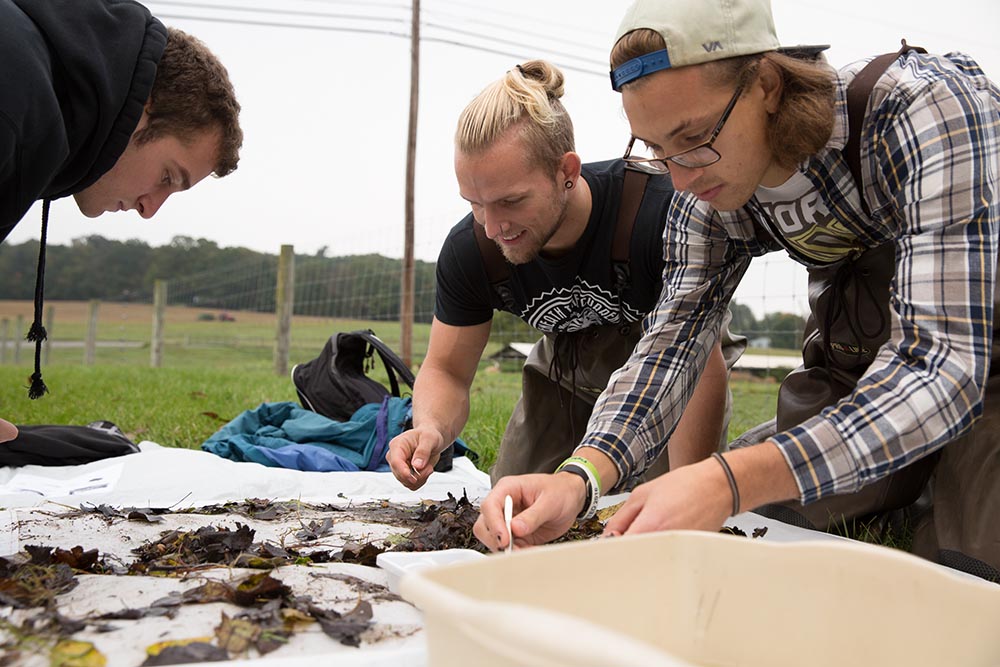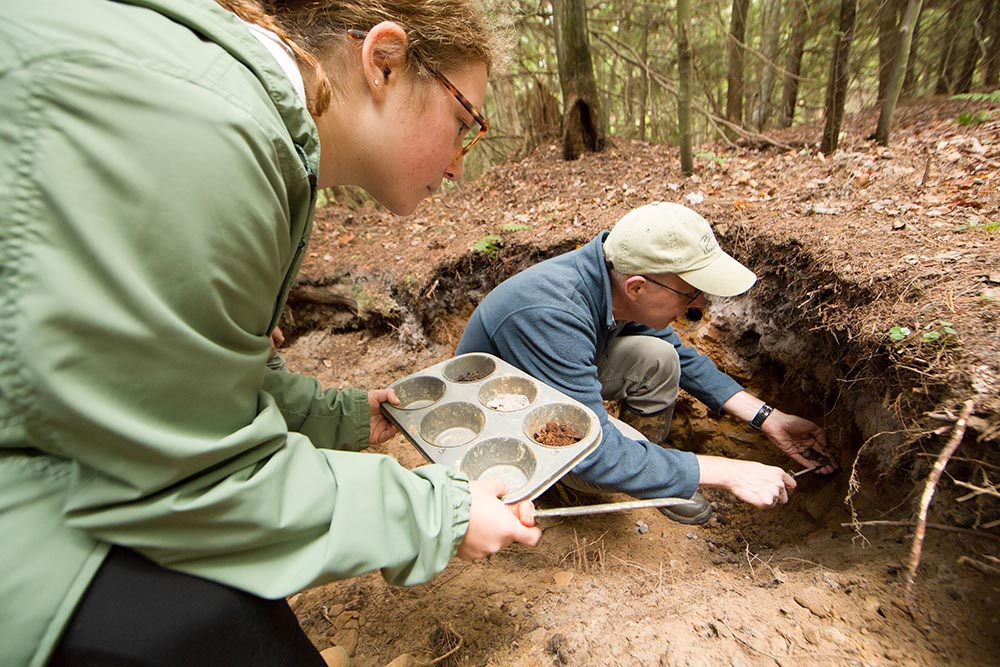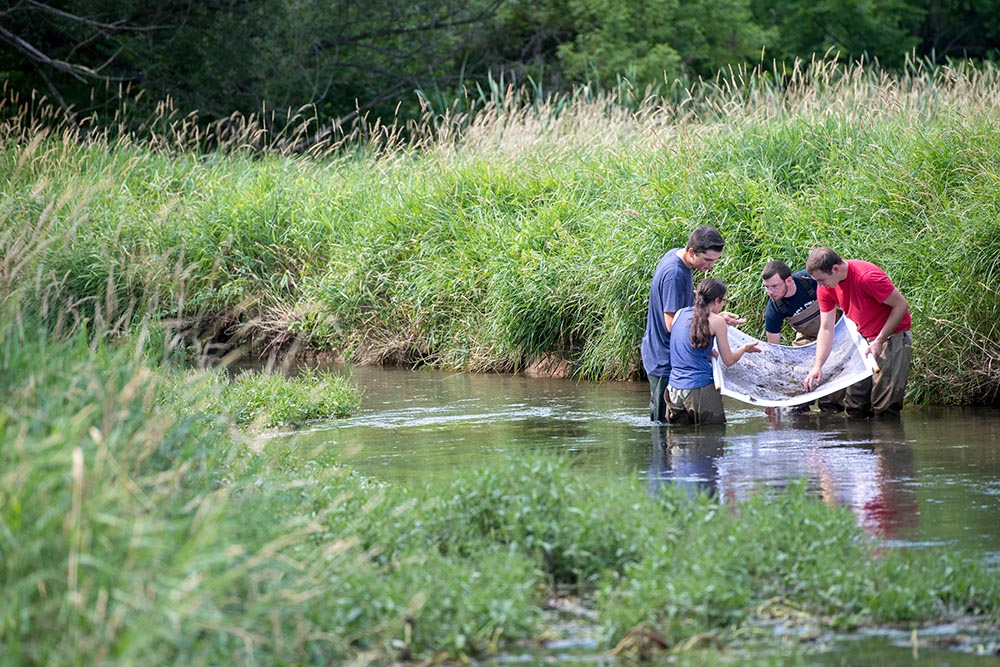Environmental Resource Management Major
The science to save the world.
A hands-on, science approach to protecting the environment. You can use this environmental science major to work for natural resource consulting firms, corporate sustainability, government agencies, and nonprofits or go on to continued success in grad programs in science, business, medicine, and environmental law.
The world is your laboratory.
Science is the key to protecting our planet. Chemistry, biology, physics, and the math supporting those disciplines is the foundation of your Environmental Resource Management (ERM) education. But don’t show up on campus without bug spray and hiking boots. While science is our foundation, putting it into practice in the field is our soul. Our most important classrooms are the nearby forests, fields, and waterways where you apply science to restore streams, safeguard forests, heal the Chesapeake Bay, understand and mitigate the effects of climate change, and more.
The length and breadth of opportunities to supplement and specialize your ERM education are as massive as Penn State itself, and when it comes to navigating your choices, you aren’t on your own. Your journey is priority number one for our faculty and advisers.
Environmental Resource Management is the right major if you’re:
- a good science student
- a hands-on learner
- happiest outside
- interested in an environmental science major
- driven to acquire high-demand skills to protect the environment
See the University Bulletin for details on program requirements, suggested academic plan, and more.

Environmental Resource Management course work is just the tip of the iceberg.
Our faculty are the best in the business, and they’ll be the first to tell you that course work is just one leg of your ERM journey. Connect with your peers, learn from alumni in the workforce through clubs, and seize nearly endless internship, research, and study abroad opportunities.
Craft your experience.
Related clubs and teams
- Environmental Resource Management Society
- Fly Fishing Club
- Soil Judging Team
- Student Farm Club
- Sustainable Agriculture Club
- See all clubs and teams
Recent internships
- Conservation District Water Quality Intern
- Environmental and Social Sustainability
- Environmental Consulting
- Environmental Protection, Air and Water Quality
- Soil Science and Ecology Research
- Water Research / Watershed Restoration
- Watershed and Water Quality
Popular study abroad
- Environmental Studies and Sustainability, Germany
- Sustainability and Natural Resources in Patagonia, Chile
- Sustainable Agriculture and Natural Resources, Costa Rica
- Tropical Island Biodiversity Studies, Panama
- Watersheds of the Wet Tropics, Australia
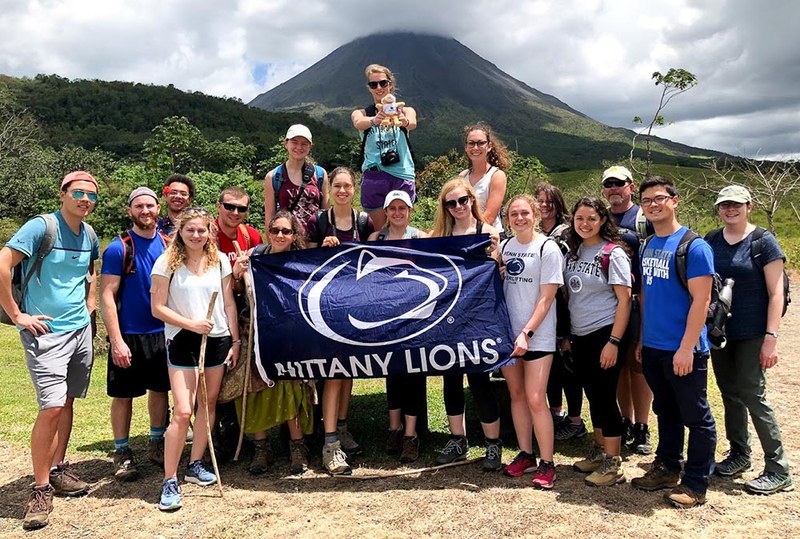
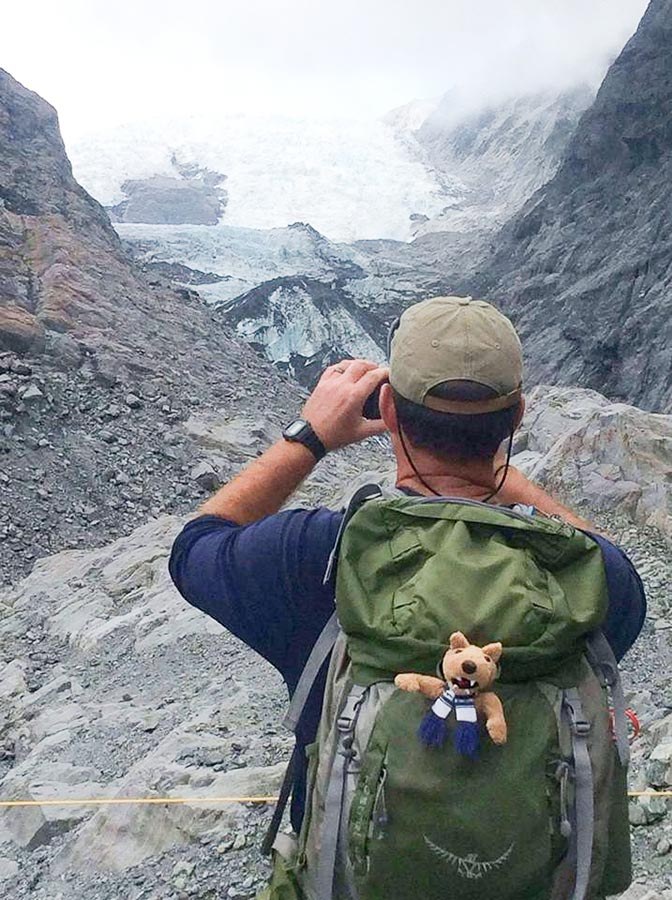
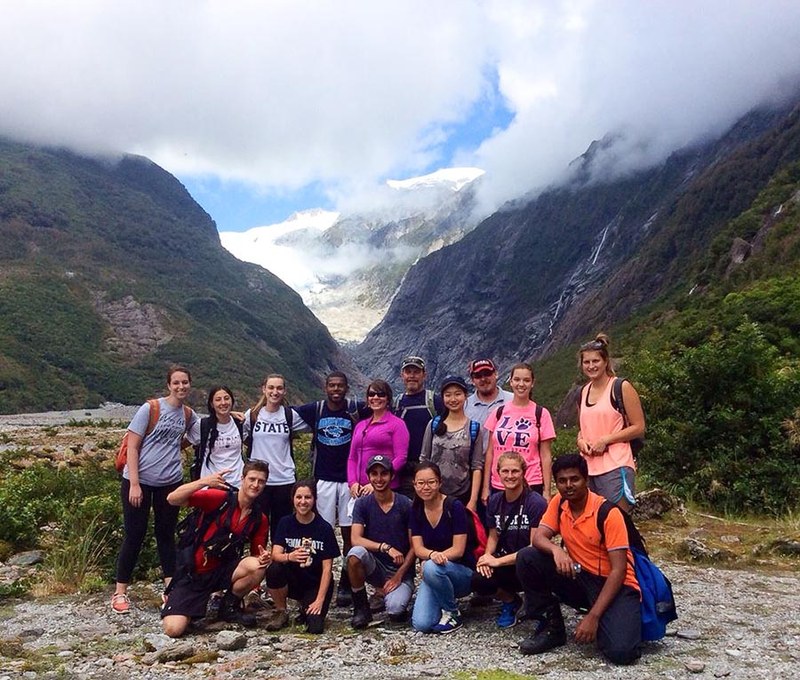
A practical, workforce-ready degree—and a college experience you’ll love.
Penn State ERM grads are making a difference all over the word, right now. You can harness the awesome power of a truly unique education at one of the world’s most prestigious universities. Here’s what some of our alumni are doing.
Our alumni out in the world
- Environmental consulting firms
- Federal and state regulatory agencies
- Corporate sustainability
- State and national parks
- Conservation districts
- Conservancies
- Environmental education organizations
- Municipalities
- Environmental law
- Water quality
- Wetland science
- Non-profit organizations
- Property and land management firms
Environmental Resource Management Career Options
Harness the power of a truly unique education at one of the world’s most prestigious universities. Here are just a few career examples.
Environmental consultant
Environmental consultants work with clients to identify and reduce or eliminate environmental damage.
What will I do?
- Assess environmental impacts connected to business operations
- Create and implement environmentally sound systems and procedures
- Ensure new practices comply with environmental laws and regulations
Wetland scientist
Wetland scientists manage and protect public and private wetland resources.
What will I do?
- Stay current on wetland regulations and scientific standards
- Collect and analyze samples and data
- Record presence of plants, soils, and animals in wetland areas
- Prepare environmental impact studies
- Collaborate with government environmental/law enforcement agencies
Environmental lawyer
ERM graduates may go onto to law school to become an environmental lawyer, a career focused on working with government and corporate entities and using the power of local, state, and federal law to protect the environment.
What will I do?
- Lobby governments for regulations regarding pollution
- Provide expert advice on legal matters pertaining to environmental issues
- Represent groups suing environmental law breakers
One of the best environmental science degree programs
Penn State's Environmental Resource Management major in the College of Agricultural Sciences is rated one of the top 20 environmental science degree programs in the country—number 5, according to SuccessfulStudent.org. Read why we are one of the best!
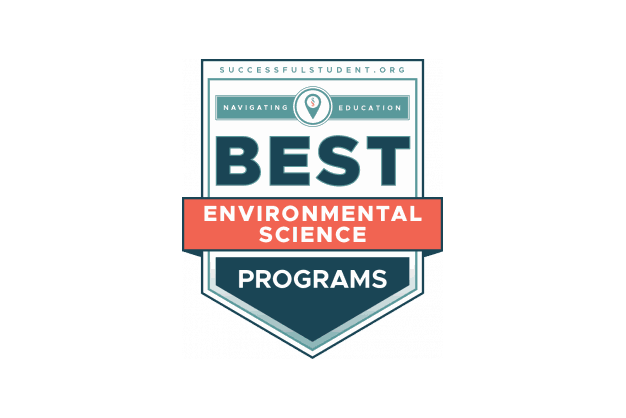
Environmental Resource Management Students in the News
November 13, 2025
World Food Prize event on rebuilding Ukraine co-hosted by College of Ag Sciences
Leaders from Penn State’s College of Agricultural Sciences helped to lead discussions on rebuilding Ukraine’s agricultural sector during the 2025 World Food Prize Borlaug Dialogue, held Oct. 19-25 in Des Moines, Iowa.
Read More
November 7, 2025
Emma Chaplin named 2026 Rhodes Scholarship finalist
Penn State undergraduate Emma Chaplin has been named a finalist for a 2026 Rhodes Scholarship, one of the most selective postgraduate awards for U.S. students.
Read More
October 1, 2025
Penn State student hones passion for environmental policy as state agency intern
Caroline Hunter, a senior majoring in environmental resource management in Penn State’s College of Agricultural Sciences, had the opportunity to grow her knowledge of environmental policy during a summer internship with the Pennsylvania Department of Environmental Protection.
Read More
September 22, 2025
Six students earn University nominations to the Rhodes and Marshall scholarships
Six Penn State students and recent alumni have been nominated for the 2026 Rhodes and Marshall scholarships, two of the most prestigious and competitive awards available to U.S. students. Nominees will submit their materials to the national review committees, and finalists will be invited to interview in November.
Read More

